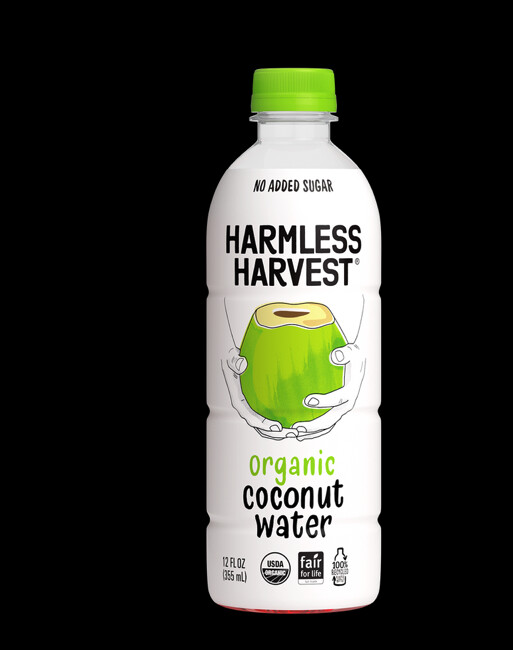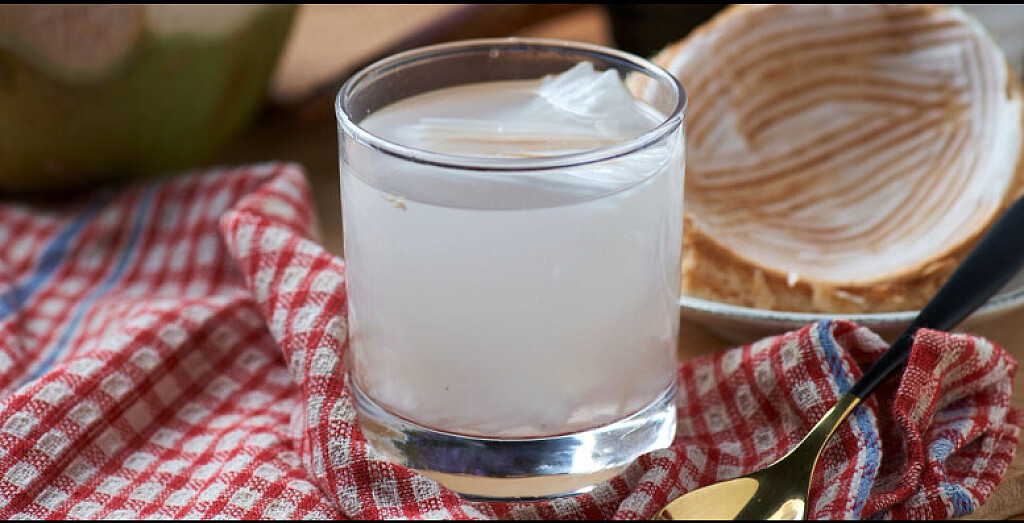Running News Daily
Running News Daily is edited by Bob Anderson. Send your news items to bob@mybestruns.com Advertising opportunities available. Train the Kenyan Way at KATA Kenya and Portugal owned and operated by Bob Anderson. Be sure to catch our movie A Long Run the movie KATA Running Camps and KATA Potato Farms - 31 now open in Kenya! https://kata.ke/
Index to Daily Posts · Sign Up For Updates · Run The World Feed
What Runners Should Know About Hydrating With Coconut Water
This tropical drink can provide a perfect refresher on a hot day, while offering up key nutrients for runners.
Figuring out your hydration needs is essential as a runner. But let’s face it, water probably isn’t what you’re craving to quench your thirst every day. One drink that might add more excitement to your hydration plan: coconut water.

Coconut water is the liquid that’s found in young coconuts, and it contains naturally occurring minerals, says Yasi Ansari, MS, RDN, CSSD, certified specialist in sports dietetics and national media spokesperson for the Academy of Nutrition and Dietetics.
Coconut water is different from coconut milk, which is pressed from ground coconut flesh and then mixed with either coconut water or freshwater, says Kelly Jones, MS, RD, CSSD, sports dietitian based in Newtown, Pennsylvania. Compared to coconut milk (the kind you’d find in your grocer’s fridge, not the canned condensed variety), which contains anywhere from 45 to 70 calories per cup, and roughly 4.5 grams of fat, coconut water averages around 45 calories per cup and typically contains no fat.
While there’s plenty of beverage options for runners to choose from today, knowing what will optimize your recovery and support your health is important. Here’s what to keep in mind about coconut water in particular.
The Benefits of Coconut Water
1. Offers Electrolytes
“Coconut water is most often praised for being a good source of potassium, with [about] 400 milligrams per cup, which is around the same amount as a medium banana,” says Jones. Consuming potassium may protect your heart, as it’s known to help lower blood pressure. “Potassium is also an important mineral to support hydration and healthy muscle function, though not without adequate sodium,” Jones adds.
Potassium isn’t the only electrolyte you’ll get from coconut water. “Coconut water also provides smaller amounts of the minerals magnesium, calcium, and phosphorus,” Ansari says. Runners lose these electrolytes through sweat and urine, so you need to replenish them, especially when clocking miles on a hot, humid day.
“Sweat loss can depend on climate, heat acclimatization, type of activity, sweat rate, diet, and more,” Ansari adds.
2. Serves Up a Healthy Supply of Vitamin C
Antioxidants are known to help your body’s natural defense mechanisms, and studies link people who eat a diet rich in antioxidants to lower risk of diseases and improved longevity. One important antioxidant in coconut water? Vitamin C.
One cup of coconut water supplies 27 percent of the daily recommended value of this vitamin, which is important in protecting your cells from the damage of free radicals, and supporting your immune system. “According to the FDA, the closer we get to 20 percent of a daily value, we’re getting a high source of that mineral or vitamin,” Ansari says.
3. Supports Your Overall Health
“While more research is needed on coconut water and its benefits on human health, coconut water has been linked to playing a role in blood sugar control, offering antioxidant properties, and supporting heart health and blood pressure,” Ansari says.
One study, published in the International Journal of Medical Research & Health Sciences, backs this up, showing that coconut water can help improve blood pressure, thanks to its potassium content and this mineral’s effects on blood flow.
Coconut water may be also help when it comes to drinking enough. If you’re replacing your normal glass of water with coconut water simply because you love it and it makes you drink more liquids, than that’s a win for your hydration, which then supports your overall health, as well as your run performance.
The Downsides of Coconut Water
One catch on the electrolyte content in coconut water: It doesn’t contain much sodium. “Since sodium is the mineral lost in the highest amounts during exercise, it’s what’s missing from coconut water for those who rely on it as a sports drink,” says Ansari. In other words, if you’re clocking a lot of miles and sweating a ton, you probably don’t want to substitute coconut water for your go-to sports hydration.
“When it comes to sports and ensuring athletes are rehydrating appropriately, electrolyte-enhanced beverages on the market that offer sodium are going to be the most optimal choice to help minimize hyponatremia risk [a lower-than-normal level of sodium in the bloodstream]—headaches, altered mental status, nausea, and vomiting can result from hyponatremia,” Ansari says.
Also, if you’re using coconut water to fuel your runs, it might not offer the carbs you need to sustain your effort. “Once we get closer to an hour [of running], the carbohydrates that are offered in other sports beverages can help sustain energy and blood sugar better [than coconut water],” Ansari says. “For those training less than an hour, coconut water can be a safe alternative [to electrolyte drinks] as long as you’re not losing too many fluids through sweat.”
How to Make Coconut Water Part of Your Running Hydration Plan
If you love coconut water and want it to play a role in your run nutrition, Ansari suggests making your own product that contains coconut water and sufficient sodium.
“I advise clients who enjoy coconut water during exercise to add 1/8 teaspoon of salt, which adds 300 milligrams of sodium. For those who sweat heavily and know they are heavy salt sweaters, 1/4 teaspoon per 16 ounce bottle may be appropriate,” says Jones.
Ansari also suggests alternating with an electrolyte-enhanced beverage that contains more sodium and supports adequate hydration. She also recommends pairing coconut water with a salty snacks, like pretzels, olives, pickles, trail mix, or salted peanut butter and jam sandwiches.
What to Know Before You Buy Coconut Water
When shopping for coconut water, Jones recommends looking for cold-pressed varieties, meaning it has not been treated with heat, which may damage some nutrients and antioxidants, such as vitamin C.
Some coconut waters also have high amounts of added sugars. The daily guideline for Americans suggests less than 10 percent of calories come from added sugars, and the American Heart Association recommends men keep daily added sugar consumption to 36 grams and women stick to 25 grams.
However, very active individuals may need more sugar than the average population, Ansari says. “What’s important to remember is that athletes need energy. Carbs fuel workouts. Electrolyte-enhanced products that contain carbs are going to help boost energy especially when consumed during a workout and when topping off energy stores prior to a workout,” she says.
If you’re drinking coconut water before, during, or after a run, it’s okay to get those added sugars to support your efforts. However, aim to limit your daily consumption of added sugars, looking for coconut water products with lower amounts.
Coconut Waters We Love
by Runner’s World
Login to leave a comment




